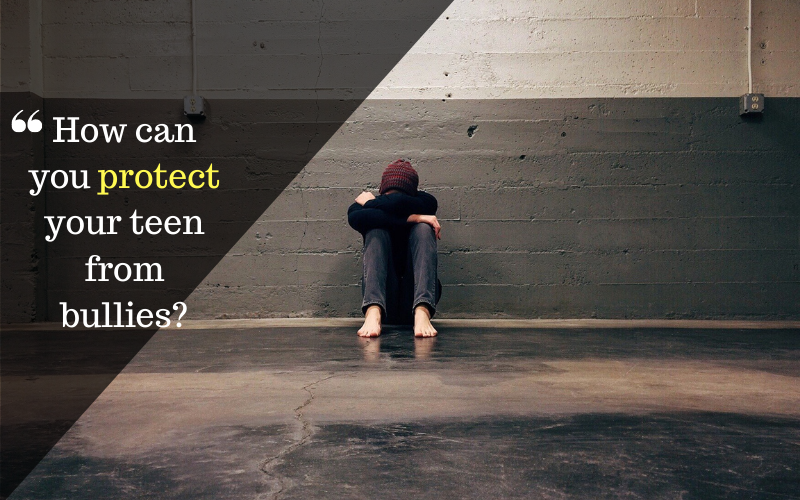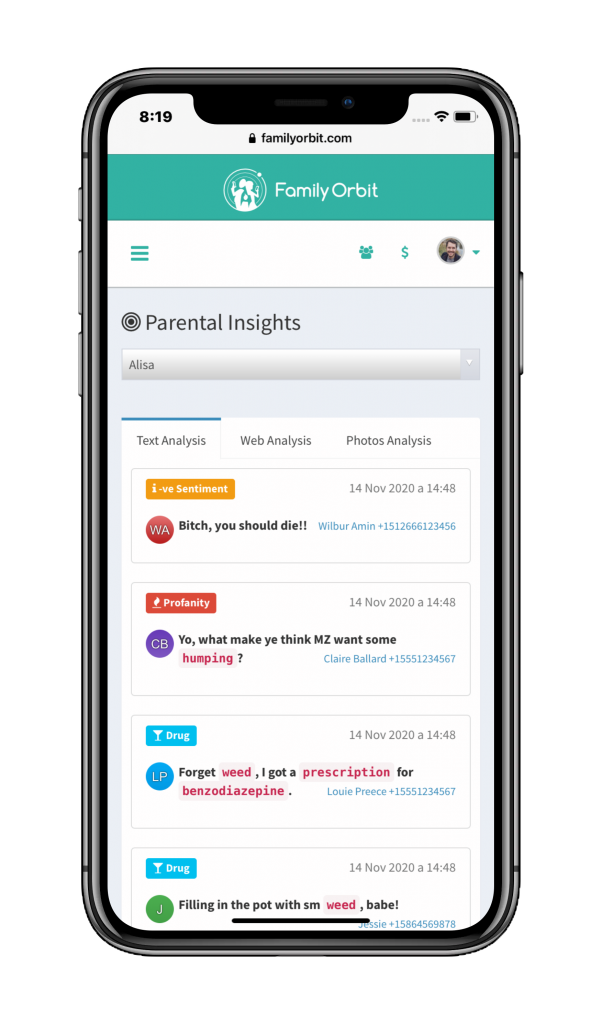Did you know that more than 20% of students ages 12 to 18 experience some form of cyberbullying? Bullying is a complex problem that can lead students to feel self-conscious, unconfident, and even depressed. So how can you protect your teen from bullies?
With this guide, we look at a few cyberbully facts you might not know. With these facts, you can learn the popular trends in online bullying and its effects on teenagers.

Now, are you ready to learn? Here’s an in-depth look at a few cyberbullying facts:
1. Name-Calling Is the Most Popular Form of Bullying
 Name-calling has become the number one form of bullying. Bullies may call teens names such as fat or stupid. While others may use racially motivated names.
Name-calling has become the number one form of bullying. Bullies may call teens names such as fat or stupid. While others may use racially motivated names.
These names can be very hurtful to the person it’s targeted at. Once bullies know that a name triggers a person, they’ll likely use it to inflict emotional harm. For example, bullies may comment mean names under social media posts, text them directly, or whisper about them at school.
2. Instagram Is the Most Popular Site for Cyberbullying
With its photogenic filters and it’s beloved like button, Instagram is one of the most popular online bullying sites. In fact, more than one in five 12 to 18-year-olds have at some time experienced bullying just on Instagram alone.
 Students will often face harassment about their weight, height, skin color, and much more. Some even face avid harassment due to their religion or disability. It can start with one mean comment then lead to others stating rumors and threatening comments in return.
Students will often face harassment about their weight, height, skin color, and much more. Some even face avid harassment due to their religion or disability. It can start with one mean comment then lead to others stating rumors and threatening comments in return.
Some students may even face sexual harassment. For example, some students may comment asking for sexual pictures, videos, or sexual favors.
To decrease the chances of bullying and harassment, install Instagram parental controls. Also, make sure your teen’s set their account to private. That way, only their selected friend list can see what they post and comment.
If your teenager does start getting bullied, make sure they block and report their attacker’s account. That way, he or she cannot repeat the pattern or do it to someone else.
3. Most Students Have Witnessed Some Type of Online Harassment
 It might come as a surprise, but most students have witnessed some type of online harassment. However, few of them intervene or tell anyone about it. Instead, they act as bystanders and allow the bully to follow through with the attack.
It might come as a surprise, but most students have witnessed some type of online harassment. However, few of them intervene or tell anyone about it. Instead, they act as bystanders and allow the bully to follow through with the attack.
This happens because teens fear being bullied themselves, so instead, they stay quiet. Although, not speaking up can increase the harassment since the bully knows he or she can get away with it. It essentially does more harm than good.
Parents should educate teens that if they see something, say something, whether it be to a teacher, school counselor, or a parent. It’s crucial that someone knows about the bullying so it can be stopped.
4. Students Self-Esteem Decreases Due to the Harassment
 When online bullying happens, it can deteriorate a teenager’s self-esteem. Leading teens to feel anxious, insecure, and have a perception of low self-worth. It can be a vicious cycle that may make a teenager reevaluate themselves due to the comments people make.
When online bullying happens, it can deteriorate a teenager’s self-esteem. Leading teens to feel anxious, insecure, and have a perception of low self-worth. It can be a vicious cycle that may make a teenager reevaluate themselves due to the comments people make.
Teenagers may begin to express their feelings, frustrations, and guilt on themselves. For example, students with such low self-esteem may develop an eating disorder, start taking unnecessary risks or may even start cutting themselves. This can be a direct repercussion of bullying and harassment and if not treated properly could turn dangerous.
5. Students Start to Avoid School
 If students are experiencing online bullying from their peers at school, then teenagers will likely start to avoid school. Some may even start to withdraw, leading students to get lower grades and miss out on important learning opportunities in fear of being ridiculed or shamed.
If students are experiencing online bullying from their peers at school, then teenagers will likely start to avoid school. Some may even start to withdraw, leading students to get lower grades and miss out on important learning opportunities in fear of being ridiculed or shamed.
Others may stop going to school because they simply don’t feel safe. After all, bullying, whether online or in-person, can make school a toxic environment for teenagers and young adults. To avoid the bullying and harassment, many teens simply don’t go to school and instead, they stay home
6. Students May Have Suicidal Thoughts
 Students may start to isolate themselves from their friends and family members due to their self-loathing ideology. They might consider themselves unworthy or not good enough to participate in group activities.
Students may start to isolate themselves from their friends and family members due to their self-loathing ideology. They might consider themselves unworthy or not good enough to participate in group activities.
Students may even believe they no longer want to live, or it would be easier if they weren’t around. In fact, those who have been bullied are 2 to 9 times more likely to consider suicide.
If the bullying continues, teenagers may act on their thoughts. It’s imperative that victims of cyberbullying get treated for any mental health concerns, whether it be through counseling or other medical practices. That way, victims can start to recover from the trauma.
Stop Online Harassment Today
Cyberbullying is something no teen should have to go through. However, in the era of social media, cyberbullying is ever increasing.
Its dramatic effects on self-esteem and self-worth pose a great risk to teenagers’ mental health. Leading teens to potentially harm themselves by cutting themselves or taking unnecessary risks with their life. Such mental anguish will likely lead to teens avoiding school and withdrawing further into depression and self-loathing thoughts.
To protect your child from cyberbullies, check out our amazing parental control app called Family Orbit. It can monitor your child’s online activities and even locate your child in real-time if need be.
If you’re interested in learning more, check out our list of price plans. We look forward to helping you!

